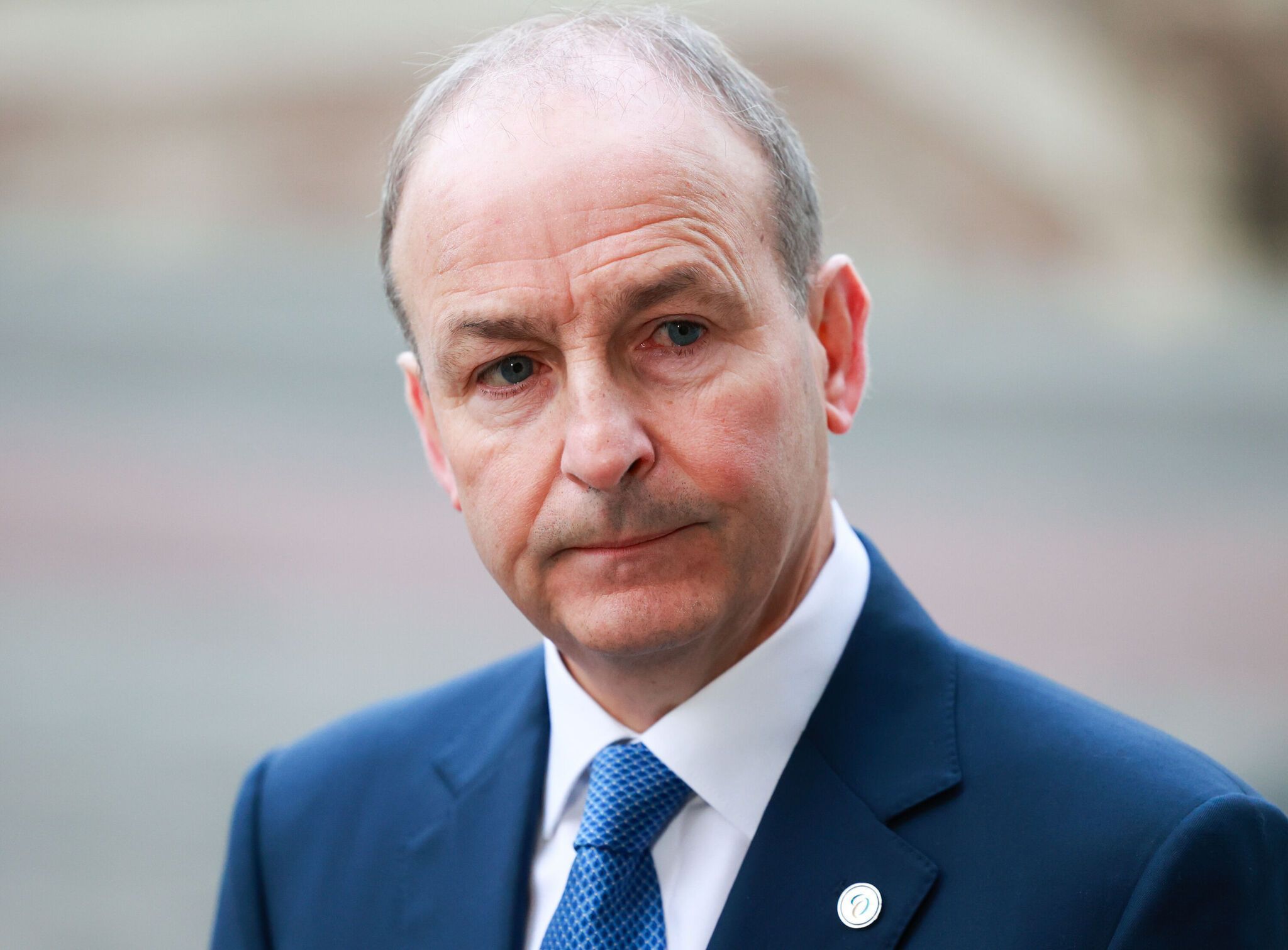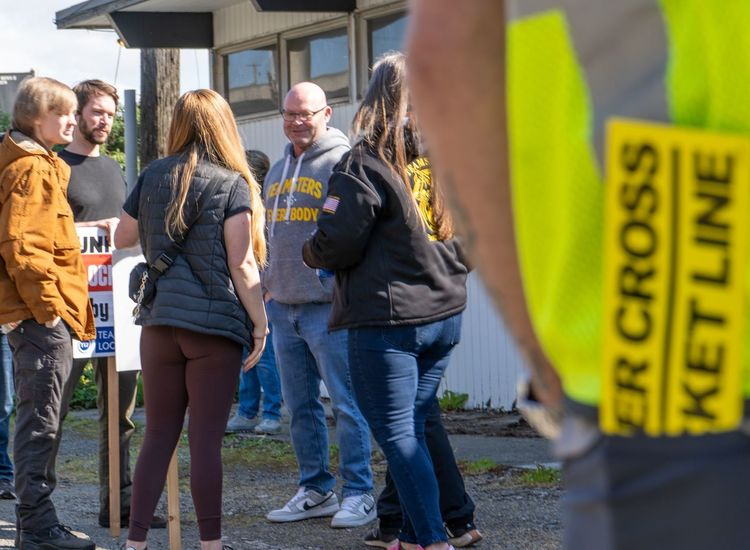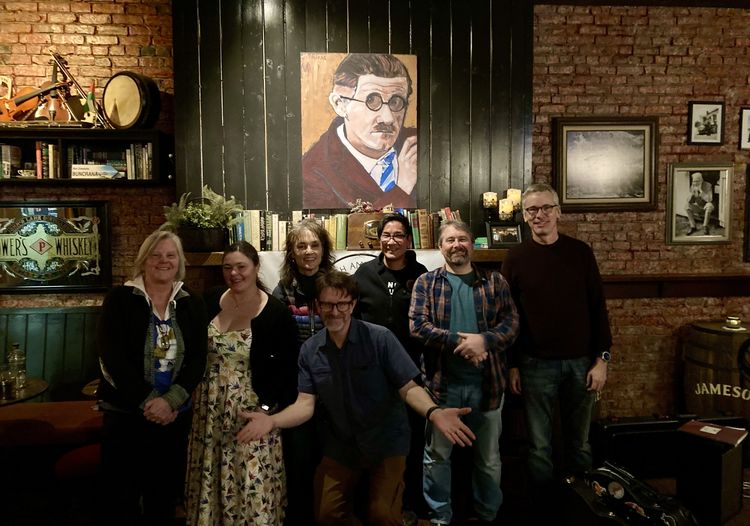I am recommending this new book, "Togáil Croí. Seán Mac Goill," by Seán Mitchell as a great Christmas present for you dear reader and for someone you love. It is bilingual and very accessible. Irish and English columns side by side, page by page. It is beautifully designed, colourful, and with many graphics and photos as befits a book which celebrates the work of the people it is about.
Seán Mac Goill is one of that band of visionaries and activists which gave us the new Bombay Street after the original Bombay Street was destroyed in the 1969 pogroms. This included the urban Gaeltacht on Bóthar Seoighe, Ballymurphy Enterprises, the Whiterock Industrial Estate, Garáiste an Phobail and many other projects going back to the mid 1960s. It is also about the Irish language in West Belfast and the wider cultural revolution across the city.
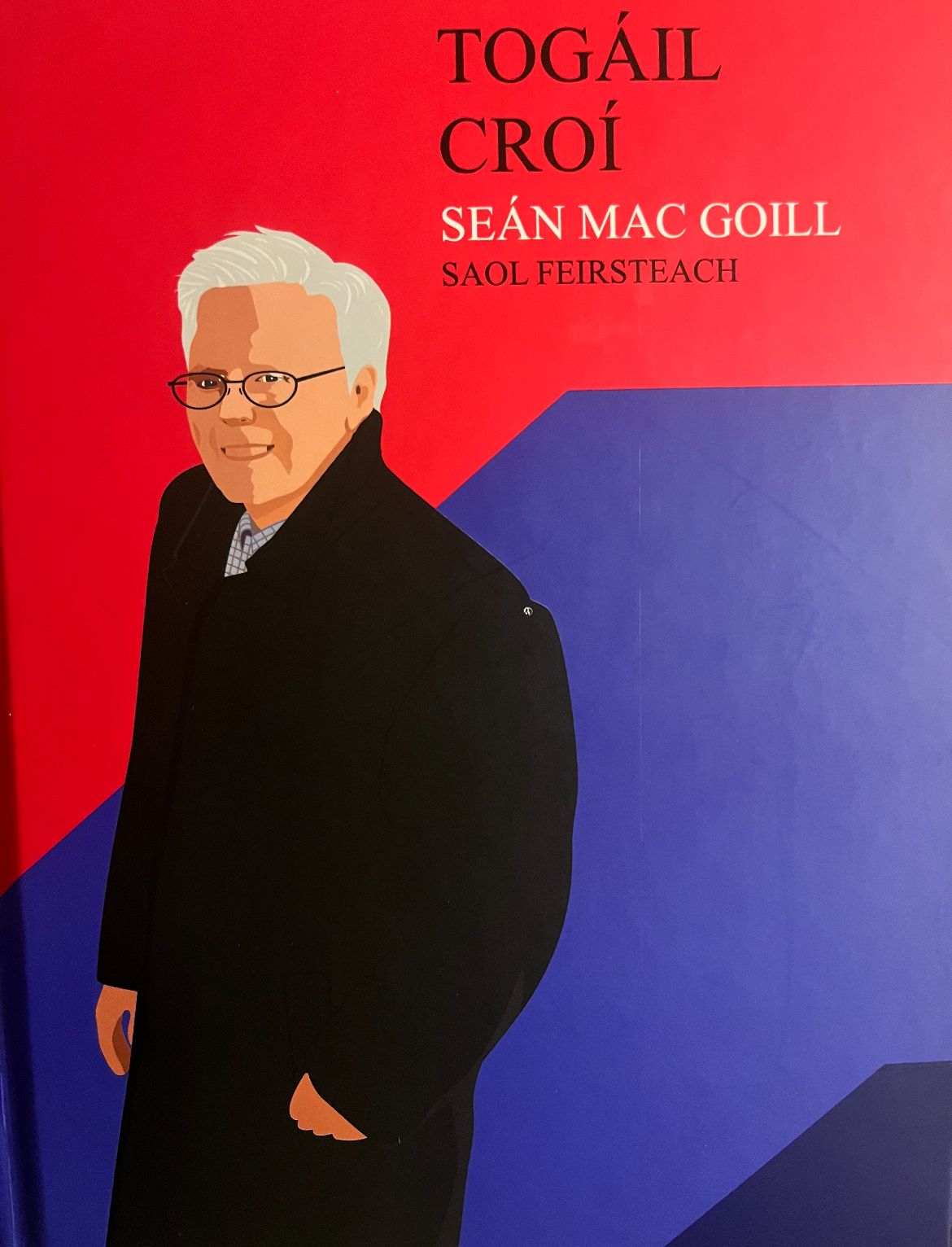
While Seán is singled out for special mention, this book is about all those who were involved and their pioneering families. It is a tribute to the critical role played by these Irish speaking visionaries and doers.
This book is about the structures for education, employment, progress, and self help which they created despite fierce opposition from an actively hostile unionist and British regime. It also draws heavily on archival material from An Spás Dín in the wonderful Coláiste Féirste in the Gaeltacht Quarter.
Have no doubts about their achievements. This is a hugely successful group of progressive Irish men and women in one of the most "economically impoverished yet intellectually and culturally rich areas in Ireland." They persisted. And they prevailed. And we all benefitted.
It also gently reminds us of the type of language activism which is needed for the future. The activism of 'Ná habair é. Déan é'. 'Don’t talk about it. Do it.'
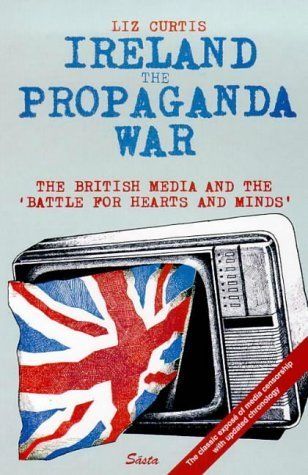
I am a huge admirer of all the people celebrated in this very important book. I am constantly inspired and encouraged by their example. Read Togáil Croí and you will be inspired also. So will whoever is lucky to get it from you in their stocking this Christmas. Available from An Ceathrú Póílí, An Chultúrlann. Bóthar na bhFál, Belfast.
JOURNALISTS UNDER ATTACK
For as far back as I can remember the phrase "truth is the first casualty of war" has been used when wars are analysed. The phrase is very old. The first time we know it was used was by Greek soldier, poet, and playwright Aeschylus in the fifth century BC who said: "In war, truth is the first casualty."
We Irish have long experience of this. During the decades of conflict in our own place political censorship by the British and Irish governments and the establishment media was widespread. But media manipulation goes back further. In her exceptional book "Ireland – the Propaganda War," Liz Curtis reminds us that the arrival in the North of the BBC in 1926 saw that organisation institutionalise a unionist ethos within its news coverage.
Quoting from a BBC document in 1930 Curtis wrote: The BBC Regional Service "reflects the sentiments of the people who have always maintained unswerving loyalty to British ideals and to British culture. Northern Ireland relies on broadcasting to strengthen its common loyalties with Britain." There were of course exceptions within the BBC and outside of it. There were journalists prepared to lift their heads above the parapet to tell the truth. Fair play to them, but they didn’t face what today’s journalists in Palestine face on a daily basis.
Israeli forces are systematically trying to shut down the truth in a ruthless and methodical campaign of assassination of journalists. At the weekend, Al Jazeera journalist Samer Abudaqa was killed. His colleague Wael Dahdouh was wounded. Only weeks ago four members of Wael Dahdouh’s family, including his wife Amna, son aged 15, daughter aged 7, and grandson aged 1 were killed. They were murdered when Israeli forces blew up the house they were sheltering in. The house was in a neighbourhood that the Israeli government said was a safe zone.
The Committee to Protect Journalists reported at the weekend that at least 64 journalists, mostly Palestinian, and media workers are among the almost 20,000 killed by Israel forces so far. At least 13 others have been injured and three journalists are reported missing. In addition, journalists in the West Bank are routinely and savagely assaulted by Israeli soldiers and settlers.
The Israeli government’s objective is to try and control the narrative – to excuse their genocidal campaign against the people of Gaza, but in particular children. They also seek to keep on board those few governments who shamefully support turning Gaza into a graveyard for the innocent.
I welcome the Irish government’s effort at last week’s EU summit, along with Spain, Malta and Belgium, to persuade the EU to adopt the demand for a humanitarian ceasefire. According to An Taoiseach Leo Varadkar, "The position of the overwhelming majority of the EU countries now is that there should be a ceasefire." However the summit failed to reach agreement.
This Monday will be Christmas Day. There is little prospect of the slaughter stopping. But if it is it will be for a pause. That is not acceptable. The deliberate and callous shooting dead of two Christian women –Nahida Khalil Anton and her daughter Samar, as they walked to a convent of nuns in the compound of the Holy Family Parish - the shooting dead of three Israeli hostages by Israeli soldiers, and the use of a bulldozer to crush Palestinians seeking refuge at Kamal Adwan Hospital, adds to the abundant evidence that Gaza is a killing field for the Israeli government.
This weekend, as we celebrate and reflect on the Christmas story, let us applaud those journalists under threat every second of every day in Gaza and the West Bank and recommit ourselves to the enormous solidarity campaign for the Palestinian people that has seen many millions across the world declare "We are all Palestinians Now."
DEFEND IRISH NEUTRALITY
At a time when significant wars are raging: Russia’s invasion of Ukraine, Israel’s assault and genocide against the Palestinian people, in the Sudan and Sahel region of Africa and elsewhere, Irish neutrality has never been more important. International tension and disputes between nations and within nations are not new. The establishment of the United Nations after the Second World War created a new paradigm – a new international structure to resolve conflicts.
It has not been easy. The system is not perfect. The recent use of the veto by the United States government to block a ceasefire resolution for Gaza at the UN is evidence of the fragility of the system. But the UN remains the best means for resolving disputes. And Irish forces in peacekeeping missions make an enormous and positive contribution to peace.
The announcement by Fianna Fáil leader and Tánaiste Micheál Martin last month that the Irish government is to scrap the triple lock system is a retrograde step. The triple lock is a mechanism which sets out the criteria for the involvement by 12 or more Irish soldiers in peace missions overseas. For troops to be deployed requires that the action is mandated by the United Nations and also must be approved by the government and then by the Dáil through a resolution.
This is not the first time that the future of the triple lock or of neutrality has been raised. Fine Gael supported dumping the triple lock two years ago but Fianna Fáil in its 2020 manifesto for the general election said it would "fully maintain" neutrality and the triple lock.
And therein lies the rub. Irish neutrality and the triple lock are seen as political Siamese twins – inextricably linked. The scrapping of the triple lock would dangerously undermine neutrality and open the door for a future Irish government joining NATO, a decision Micheál Martin has already said does not require a referendum, but simply a decision of government. Following the invasion of Ukraine Martin said: “We need to reflect on military non-alignment in Ireland and our military neutrality.”
The Irish government is treading a dangerous path. Neutrality is, and should, remain the cornerstone of Irish Foreign Policy. It allows an Irish government to play a positive role in the wider world, especially in defence of human rights. It shouldn’t be left to government politicians to decide whether Irish soldiers are sent to fight wars for the big powers.

